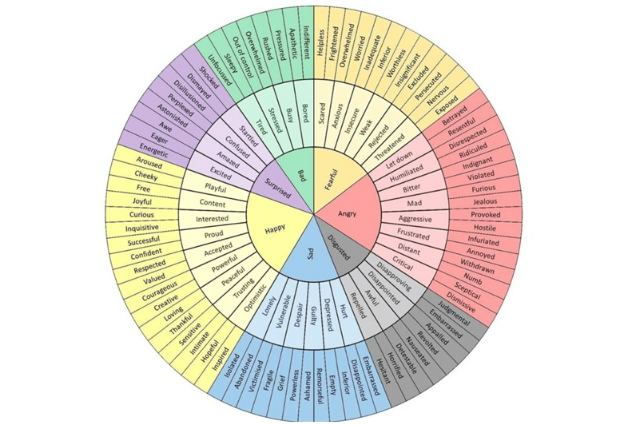
Image by OpenClipart-Vectors from Pixabay
The prevalence of suicide news stories in recent times is a harrowing reality that cannot be ignored. The topic of suicide demands sensitivity and compassion, but it also requires deeper introspection and heightened awareness talks to better understand the complexity surrounding such incidents. While individuals across all age groups may struggle with suicidal thoughts or actions, statistics have revealed that young adults between 15-24 years are particularly vulnerable to this phenomenon both within India and around the world. A heartbreaking example of this was witnessed by me when I read about a seventh-grade student who had taken his own life after being humiliated by his teachers for cheating on an exam. This devastating incident took place in Uttar Pradesh on September 22nd, 2022. The boy involved was known for excelling academically even at the Olympiad level; however, upon getting caught cheating during his biology exam, he faced severe repercussions from his educators. Upon returning home later that day, he hanged himself leaving behind a message emphasizing - “Everyone deserves a second chance”.
He made a grave error in resorting to cheating during the exam, which elicited an intense reaction from his teachers. This left him feeling deeply ashamed and powerless as he struggled with the thoughts that had compelled him to cheat in the first place. These powerful emotions serve as a stark reminder of just how intrinsically intertwined our inner worlds are with everyday experiences. Emotions, being complex physiological and psychological responses, can be triggered by people, things, events, or experiences- whether it's experiencing an increased heart rate before going on stage or feeling immense pride upon receiving an award. It is important to note that our thought processes are directly linked to our emotional states; they both heavily influence one another. Understanding this dynamic interplay between these two factors is crucial when examining the different behavioral patterns, we exhibit every day.
Considering how crucial emotions are to us, knowing about emotional intelligence is a need of time. Emotional Intelligence which was first introduced by Mayer and Salovey in 1990, is an ability to recognize the emotions of self and others, to understand the cause and consequences of emotions, to express emotions appropriately, and to regulate the emotions effectively. Emotional intelligence encompasses a range of competencies, including self-awareness, self-regulation, empathy, and social skills. Emotional expression has negative connotations attached to it in our society, we see it as a sign of weakness. This pushes an individual to suppress their emotional experiences which can hinder their learning because every emotion has a function and is giving out a message. It can also lead them to develop maladaptive coping mechanisms which in the long run can affect the well-being of a person negatively.
How to bring about a change? It can start with you and your home. Parents can use emotional intelligence in their parenting by modeling emotionally intelligent behaviors and helping their children develop their emotional intelligence. Here are some ways in which parents can incorporate emotional intelligence in their parenting:
1. Developing self-awareness and practicing the healthy expression of emotions:
There can be times when you are not feeling good and most probably will happen to vent out on children. This is why self-awareness is the first step. Try to sit with your emotions and see where it is coming from, which can help you effectively deal with them. Like every one of us, children are also learning through observations. If they see you venting out your emotions in unhealthy ways such as beating them or breaking things, they are likely to learn the behavior. Thus, this is very crucial. Even if the cause of your emotions is your children, try to communicate properly with them while using a calm tone of voice and providing context. For instance, try saying “I feel sad when you don’t listen to me” instead of “You always ignore me”. If they upset you or make you feel joy, communicate with them. This will help them develop the habit of communicating and expressing their emotions in healthy ways.
2. Understand, accept, and validate their emotions:
When your kids express that they are upset or stressed, avoid saying “What is there for you to be stressed about when we are providing you everything?”. Acknowledge the fact that they are also humans and they have a life of their own. Instead, take this as an opportunity to connect with them. Use validating language. For example: “I can understand that you’re feeling frustrated right now, anyone would have felt the same way.” Acknowledge their efforts as well. For instance; your children got low marks in a test. Here, instead of criticizing, acknowledge their efforts because everyone is trying their best and they are no exception. While acknowledging and validating their emotions, you can try to give them an insight into the situation so that they can navigate through it.
3. Encourage empathy:
Parents can encourage empathy by practicing empathy towards their children such as active listening to them is also a part of empathy. Also, help your children take on another perspective on situations. For instance, if your child got into a fight with their friends, encourage perspective by asking, “How do you think your friend is feeling now?”. By encouraging empathy in children, parents can help their children develop important social and emotional skills, including communication, relationship-building, and conflict resolution.
4. Teach healthy coping skills:
Parents can demonstrate healthy coping skills such as meditation and mindfulness exercises, and teach their children to learn them as well. Teaching relaxation exercises, deep breathing techniques, journaling, and visualizations can provide children with tools to manage and regulate their emotions healthily. This can also help both, parents and children to reduce their stress and anxiety. You can also encourage them to involve in creative activities such as drawing, to process their emotions.
5. Develop emotional vocabulary:
Most of the time, we don’t know how to express what we are feeling. It feels like there are no words to describe it, doesn’t it? But the reality is that our emotional vocabulary is narrow. There are many emotions other than anger, sadness, and happiness. Labeling emotions accurately is also an important part of emotional intelligence. Thus, expand your emotional vocabulary and help your children learn to label their emotions accurately and widen their emotional vocabulary. You can refer to the following emotion wheel:
6. Encourage social skills:
Interpersonal skills are very important in emotional intelligence. Thus, allow your children to build connections and practice and develop their social skills. You can teach them about inclusion, respect, and conflict management which they can use to foster their social connections.
7. Encourage problem-solving and decision-making skills:
If a child comes to you with a problem, avoid telling them what to do. Instead, give them needed insights into the problem, and let them brainstorm the solutions. If you right away give them solutions, the child would grow co-dependent on you and they will never learn to reflect, take on perspective, brainstorm and independently take decisions. Problem-solving and decision-making skills are very crucial to emotional intelligence.
8. Seeking professional help:
Ups and downs of life can surely be very overwhelming at times. During such times, normalize asking for help. If you too are not able to deal on your own, reach out to people or professionals for help. Also, if a child is experiencing significant emotional and behavioral challenges, consult mental health professionals. It is okay to go to therapists or counselors, one doesn’t have to be necessarily “crazy”.
In conclusion, emotional intelligence is an ability. By ability, it means that it can be practiced and developed over time. It is a critical component of personal and social development. The development of emotional intelligence can have significant benefits for individuals, including improved relationships, better decision-making, and increased resilience in the face of stress and adversity. Parents can play an important role in fostering the development of emotional intelligence in their children by providing opportunities for emotional expression, modeling healthy coping strategies, and promoting empathy, social skills, and problem-solving skills. Educators and employers can also promote emotional intelligence by incorporating training and development programs that focus on emotional intelligence skills. Overall, the importance of emotional intelligence cannot be overstated. By developing our emotional intelligence, we can better understand ourselves and others, build stronger relationships, and lead more fulfilling lives.
. . .
Reference to the news story of the suicide:
- https://timesofindia.indiatimes.com/city/lucknow/up-class-7-boy-thrashed-by-teacher-principal-hangs-self/articleshow/94403561.cms

